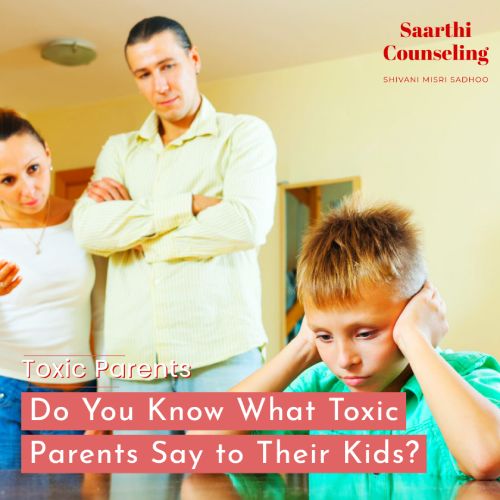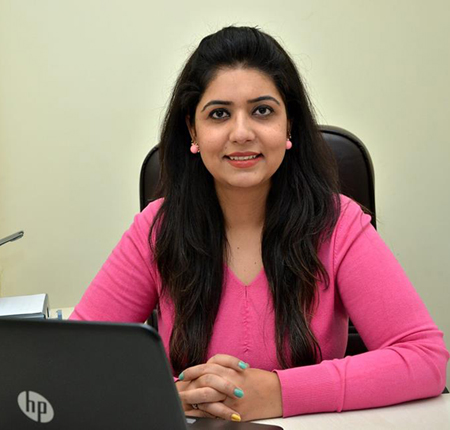Parenting can be quite tough, and there will be times when you might lose your cool in front of your kids. You may even say some hurtful things to your little one. But if you are being physically or emotionally abusive or using your kid’s love for you to control them, you are a toxic parent. Using fear, threats, or guilt as tools against your child will do no good.
Kids are quite sensitive and are wired to respond to more than mere words. They understand your behaviour and emotions towards them. The trauma that comes from dealing with toxic parents could be long-lasting, so stop saying hurtful things to your kids, suggests Shivani Sadhoo.

Psychologist and family counsellor Shivani Misri Sadhoo shares knowledge about toxic parents and how they can impact a child. Things that toxic parents say to their kids, toxic parents have nothing good or positive to say to their children. Some of the hurtful things they often say to their kids are:
Criticizing their appearance
Kids are quite vulnerable and exposed when it comes to feedback from their parents. Criticizing their appearance such as body shaming them, commenting on their clothes, hair, or in general, the way they look could be quite derogatory.
Belittling them
It might be difficult to believe but children also have complex emotions. Toxic comments that belittle them or their feelings such as calling them stupid, fool, disappointing, worthless, or making them feel useless are quite unhealthy for them.
Blaming them
Toxic parents, in a moment of rage or frustration, might blame the kids. Comments like “I sacrificed so much for you” or “you make my life hell” are used to make them feel guilty and indebted.
Unfair comparisons
Several times, toxic parents have a habit of comparing their children with other kids. They tend to compare their child to either a sibling, cousin, a kid in the neighbourhood, or their school.
Limiting them
Parents always have the upper hand when it comes to making decisions for their kids’ lives. Taking unfair advantage of this, restricting and manipulating the child with comments and ultimatums such as “you can do this or cannot do this” is quite toxic, be it for education, playing, or a job.
Toxic comments have serious outcomes
Toxic comments are strong enough to derail a kid’s complete life. A serious problem can crop up with body shaming, says psychologist Shivani Misri Sadhoo. They can even have an adverse emotional impact like:
- Low self-esteem
- Eating disorders
- Body dysmorphic disorder (a mental illness that involves obsessive attention to a perceived flaw in looks)
- Anxiety
- Depression
In the long course, these insecurities might prevent them from living a healthy life or building healthy relationships. Toxic comments and repeated negative criticism from parents including parental rejection could lead to an inferiority complex and self-criticism in your kids which can often last a lifetime (ways to overcome self-criticism).
How can parents refrain from being toxic?
The important point to realize here is that kids are just little human beings having emotions as complex as adults. So, begin by valuing them. Remind yourself that they are learning to do things each day. Place yourself in their shoes and think about how you would feel if someone you love criticized you or belittled you always. Learn to listen and acknowledge their feelings and do better every day.

Shivani Misri Sadhoo is an internationally recommended relationship Counsellor by world’s biggest and most trusted study and research-based foundation for couples therapy – Gottman Institute. She is trained on specialised key relationship counselling Skills from AIIMS, VIMHANS and various other reputed institutions. Counselor Shivani Misri Sadhoo, is also Certified for Emotionally Focused Therapy, Cognitive Behavioral Therapy and Dialectical Behaviour Therapy.
Counsellor Shivani Misri Sadhoo is also a Certified Neuro Linguistic Practitioner with specialised training and experience in the field of affairs/betrayals, trust issues, difficulty communicating, conflicting values, bereavement, grief and loss (affairs, separation, divorce, childhood) and emotional health issue (anxiety, social anxiety, fear, depression, low mood).
Currently, Shivani Misri Sadhoo is one of the top counsellors with the HIGHEST Success Rate with over 17,000 happy couples and individuals (based in India and abroad), who has benefited from her therapy. Psychologist and Counselor Shivani Misri Sadhoo not only practice independently from her clinic in Greater Kailash, Delhi, India but also listed on the panel of eminent hospitals like IBS Hospital – Institute of Brain & Spine, Express Clinic, Fortis (formerly) based in Delhi.



